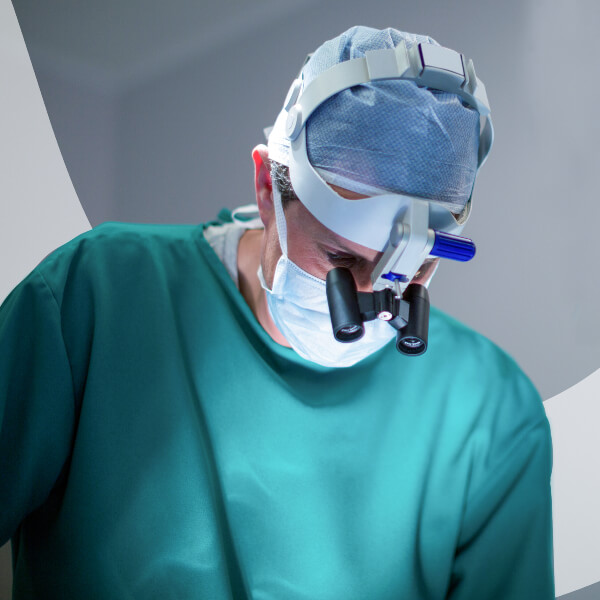What happens when you overeat after gastric sleeve surgery?
Having gastric sleeve surgery is a big step towards transforming your life, but it comes with a lot of adjustments. One of the challenges people face after surgery is overeating. You might think that since your stomach is smaller, it’ll automatically be easier to avoid overeating—but that’s not always the case. Sometimes, emotional triggers or simply old habits can lead to eating more than your body can handle.
In this post, we’re going to dive into the symptoms of overeating after gastric sleeve surgery, the risks involved, and most importantly, what you can do to prevent it. If you’re struggling with this, or if you’re just trying to learn how to stay on track, these tips could make all the difference.
Common symptoms of overeating after gastric sleeve surgery
Even though the surgery reduces the size of your stomach, it doesn’t mean that overeating is out of the question. After all, it’s easy to forget that eating slowly and in small portions is key to long-term success. Overeating can still happen, and when it does, your body will send you signals. Here are some common symptoms you might experience:
Stomach pain and discomfort
One of the first signs you’ve overeaten is feeling some serious discomfort in your stomach. This isn’t just a mild bellyache it’s more like your stomach is stretched to its limit. You might feel a cramping sensation, bloating, or just that “full” feeling that doesn’t go away. This happens because the stomach, although smaller, is still trying to process more food than it’s designed to handle.
Bloating and excess gas
Bloating and gas are pretty common symptoms after eating too much post-surgery. Your stomach doesn’t have the same capacity it used to, so when you overeat, food doesn’t get processed as quickly. As a result, gas builds up and creates discomfort. This bloating can last for hours, and sometimes, it leads to even more digestive issues, like heartburn or reflux.
Nausea and fatigue
Nausea is another common response to overeating. Your stomach is already working hard to process the food, and if you overwhelm it, you might end up feeling queasy. Along with nausea, overeating can lead to a sense of fatigue. Your body is using more energy to digest than it should, which can leave you feeling drained and sluggish definitely not ideal if you’re trying to stay active and healthy.
Indigestion and heartburn
Finally, overeating can trigger indigestion, which can quickly turn into heartburn. When the stomach is too full, food and acid can move back up into your esophagus, causing that uncomfortable burning sensation in your chest. If this happens too often, it can lead to long-term digestive issues and even more discomfort in the future.
The risks of overeating after gastric sleeve surgery
While overeating may feel uncomfortable in the moment, the risks don’t stop there. If you’re frequently overeating after surgery, there are several serious long-term consequences that can affect both your health and your weight loss goals. Let’s take a look at some of the risks involved.
Stomach stretching and weight regain
The primary purpose of gastric sleeve surgery is to reduce the size of your stomach so that you feel fuller with less food. But if you overeat too often, your stomach can begin to stretch. As your stomach stretches, it can hold more food, which means you’ll start eating larger portions again. This leads to weight regain, which can undo the progress you’ve made. It’s important to remember that this is gradual and can take time, but the results can be frustrating.
Dumping syndrome
Dumping syndrome is a serious condition that occurs when food moves too quickly through your stomach and into your intestines, usually after eating too much or consuming foods high in sugar. This can cause nausea, dizziness, diarrhea, and even vomiting. The discomfort associated with dumping syndrome can be severe, making it a major reason to avoid overeating.
Acid reflux and digestive problems
Overeating puts pressure on your stomach, which can lead to acid reflux or even more severe digestive problems. If you overeat regularly, you risk aggravating these issues, causing chronic heartburn or indigestion. Over time, this can affect your ability to enjoy meals and even lead to long-term complications with your esophagus.
Increased risk of obesity-related diseases
Gastric sleeve surgery helps lower your risk of developing diseases related to obesity, such as diabetes, high blood pressure, and sleep apnea. However, if overeating becomes a habit, you risk regaining the weight you’ve lost, which brings back those health risks. The surgery’s benefits are linked directly to maintaining a healthy diet and weight—overeating undermines all of that progress.
How to prevent overeating after gastric sleeve surgery
Now that we’ve talked about the symptoms and risks, let’s focus on how to avoid overeating in the first place. Here are some practical strategies that can help you stay on track and avoid the issues associated with overeating:
Eat smaller, balanced meals
Instead of focusing on larger meals, try eating smaller portions more frequently throughout the day. This will help prevent your stomach from becoming overloaded, while also keeping your metabolism active. Focus on nutrient-dense foods, such as lean proteins, vegetables, and healthy fats. Avoid foods that are high in sugar or processed ingredients, as these can lead to overeating.
Take your time and chew thoroughly
One of the easiest ways to prevent overeating is by eating slowly. This gives your brain the time it needs to register fullness. Try chewing each bite 20–30 times before swallowing and set your fork down between bites. By eating mindfully, you’re less likely to rush through your meal and eat more than you should.
Don’t drink fluids during meals
Drinking fluids while eating can fill your stomach too quickly, leading to overeating. Instead, try to drink fluids between meals. It’s also a good idea to avoid carbonated drinks, as they can cause bloating and discomfort after surgery.
Listen to your body
Your body knows when it’s had enough so listen to it! If you start to feel full, stop eating. It might take time to re-train your habits, but learning to stop when you’re full is essential for avoiding overeating. Trusting your body’s signals will help you maintain a healthy relationship with food.
The long-term impact of overeating after gastric sleeve surgery
If overeating becomes a regular part of your routine, it can start to reverse the benefits of your gastric sleeve surgery. Not only can this lead to stomach stretching and weight regain, but it can also contribute to other health problems, like high blood pressure, diabetes, and sleep apnea. Staying consistent with healthy eating habits is crucial if you want to maintain the progress you’ve made.
Seeking professional help
If overeating is becoming a frequent issue, don’t hesitate to seek professional help. A dietitian or nutritionist can help you develop a healthy eating plan, and a therapist can help address any emotional triggers that might lead to overeating. Remember, you’re not alone—getting support can be a key part of long-term success.










